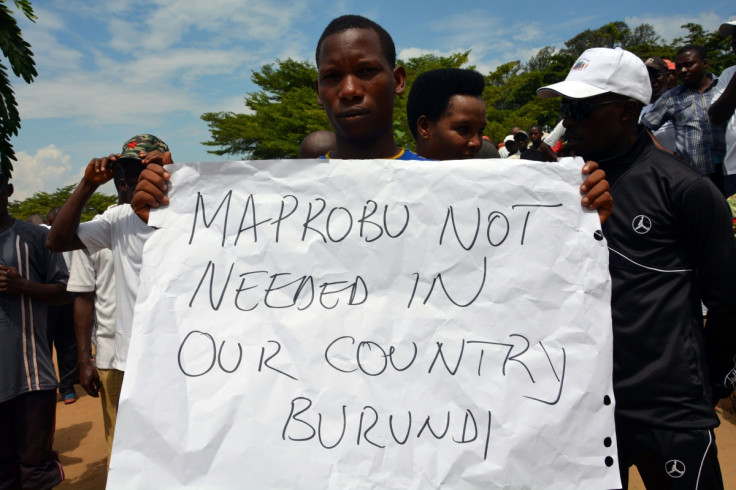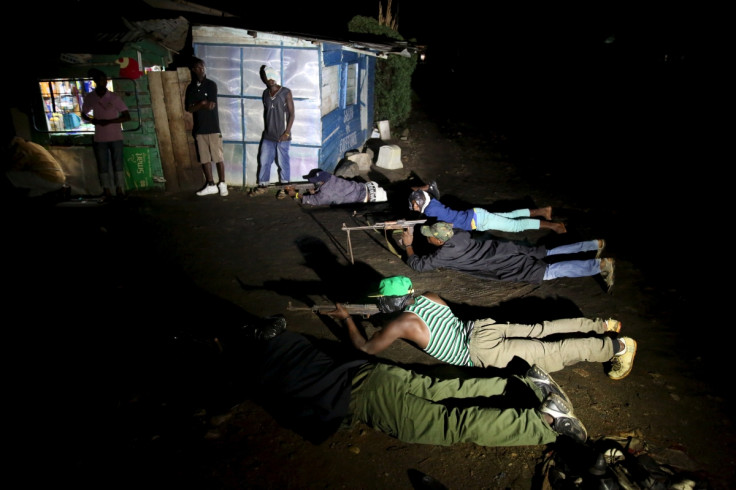Burundi: UN peacekeepers cannot protect civilians should civil war genocide erupt

The United Nations (UN) would not be adequately prepared to act should the worst scenario of violence occur in Burundi. This is according to a leaked memo written by the United Nations head of the department of peacekeeping operations.
On 6 January, the UN received the strictly confidential memo written by Hervé Ladsous in which he focused on the fragile political, economic and societal situation in Burundi, and discussed three possible scenarios - from low intensity violence to genocide. The UN Security Council (UNSC) will hold a meeting between 20 and 22 January in New York on the situation in Burundi.
If the genocide scenario were to occur, Ladsous wrote in the memo outlining UNSC's plans for a deployment of troops in Burundi in the case of increasing violence, the UN is absolutely not prepared to act, according to a report by Radio France Internationale (RFI).
UN: Three scenarios possible for Burundi
- First scenario: Despite regular violations of human rights - including by police or security forces, the situation remains stable. In which case, the UN should conduct an observation mission and support the deployment of the African Prevention and Protection Mission in Burundi (Maprobu), a stabilisation force of the African Union.
- Second scenario: Following a split in the army, or a political assassination, violence rises with open clashes. There is no more political discussion possible and Maprobu cannot handle the situation. Consequently, the violence intensifies and spreads within the country, including the borders of the Democratic Republic of Congo (DRC) and Rwanda. The number of refugees doubles and, as a humanitarian disaster affects 2 million people, the economy collapses.
- Third scenario: The violence takes on an ethnic dimension, with the emergence of incitations to commit crimes against humanity, war crimes or genocide. The whole country is ablaze, and violence either has consequences or spills into neighbouring countries.
Deployment of peacekeepers recommended
Whatever the scenario, the note highlighted, the UN does not have the capacity to protect the population without receiving support from its member states. Should either of these last two scenarios of escalation of violence occur, the memo recommends sending peacekeepers, as a last resort, RFI reported.
The deployment would have to be authorised by a resolution of the UNSC. However, in order to ensure a rapid deployment, the memo suggests tapping into the military contingent of the existing UN Stabilisation Mission in the Congo (MONUSCO). After a preparatory phase of one month, 4,000 men could be on site in less than half a day, Ladsous estimated.
This last resort would represent a risk to the situation in DRC, the memo underlined, but sending other contingents could take up to six months.
Worsening violence and new insurgencies
The document presented a number of alarming findings including a rise in violence and targeted killings in the months of November and December.
The situation was further complicated by the formation of two insurgency groups, the Republican Forces of Burundi (Forces républicaines du Burundi, Forebu) and Resistance to the Rule of Law in Burundi (Résistance pour un Etat de droit au Burundi, RED-Tabara).

Indeed, Ladsous wrote, clashes between these armed groups and forces loyal to incumbent President Pierre Nkurunziza have caused many collateral victims, amid a population already reeling from a severe economic crisis, shortages of food and medicine.
At December-end, Burundi's rebels came together for the first time as a force aimed "to protect the population" and oust Nkurunziza, according to Edouard Nshimirimana, a former army colonel turned-rebel.
Nshimirimana was a lieutenant colonel and top communications officer in Nkurunziza's army before defecting in September 2015. "Our goal is to drive out Nkurunziza by force to restore the Arusha accord (that paved the way to the end of the 1993-2005 civil war) and democracy," Nshimirimana told AFP news agency over the phone on 23 December. A day later, the government said it would swiftly crush the rebels.
Hundreds killed in violence
Nkurunziza, a former rebel fighter himself, announced in April 2015 that he would run for a controversial third term, in a move many commentators say breached the 2005 Arusha peace deal that ended the 12-year civil war, which claimed 300,000 lives, and prompted weeks of demonstrations by young activists in the capital Bujumbura.
At least 400 people have been killed and almost 3,500 have been arrested in a campaign of political repression and violent unrest, prompting Zeid Ra'ad Al Hussein, the UN high commissioner for human rights, to declare that the country was on the verge of civil war. Eight months down the line, pressure is mounting on both sides to reach a peace deal.
The UNSC warned of sanctions, before the African Union (AU) said it was considering an unprecedented plan to send 5,000 troops from the East Africa Standby force to protect civilians in the strife-torn nation.
© Copyright IBTimes 2025. All rights reserved.





















